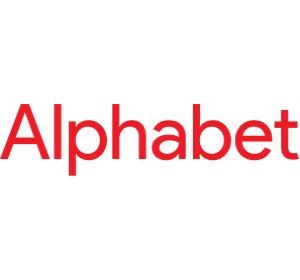$GOOGL $NVDA $AAPL
#GooglePixel #Pixel9a #Google #TechStocks #MobileMarket #Smartphones #StockMarket #Investing #AI #Hardware #GadgetLeaks #Innovation
The upcoming Google Pixel 9a has surfaced in several hands-on video leaks ahead of its anticipated March 19 unveiling, reinforcing Google’s expanding focus on its hardware strategy. The leaks reveal a significant design overhaul, with a flat-edged frame and a revamped 48MP primary camera sensor. Another notable inclusion is the 5,100mAh battery, marking an upgrade over its predecessor, aimed at improving battery life and overall efficiency. Google’s hardware segment, particularly the Pixel lineup, has been steadily growing as the company leverages artificial intelligence and software integration to differentiate itself from competitors like Apple and Samsung. With the Pixel 9a expected to price competitively in the mid-range smartphone market, investors are closely watching how Google’s strategy continues to evolve in an increasingly competitive mobile segment.
The leaked specifications showcase a strategic enhancement in camera technology and battery life, suggesting Google is doubling down on user experience rather than competing purely on hardware specifications. A larger battery combined with Google’s software optimizations could mean improved longevity and potential upside for Pixel adoption among budget-conscious users. Additionally, a 48MP camera sensor indicates a leap in imaging capabilities, an area where Google’s computational photography has already given it an edge over many rivals. With AI-powered enhancements driving the Pixel’s camera performance, there is increasing synergy between Google’s software innovation and hardware advancements. These improvements also align with Google’s broader ambition of expanding its presence in the mobile sector, which could positively impact Alphabet Inc.’s ($GOOGL) long-term revenue strategy, particularly as smartphone AI capabilities continue to evolve.
From a financial perspective, Google’s continued investment in its Pixel lineup could help diversify its revenue streams beyond digital advertising, a sector subject to regulatory scrutiny and competitive pressures. The smartphone market has historically been dominated by Apple and Samsung, yet Google’s Pixel phones have carved out a niche due in part to their deep software-hardware integration. If the Pixel 9a successfully capitalizes on demand in the mid-range market with compelling features, it could contribute to incremental revenue growth for Alphabet. Moreover, the inclusion of AI-driven camera enhancements and a robust battery suggests Google’s increasing focus on hardware differentiation, potentially leading to higher consumer retention in its ecosystem. This could also impact Google’s cloud and services business, as more Pixel users drive engagement with Google One subscriptions and other integrated features.
Wall Street will be monitoring the reception of the Pixel 9a closely, as Google’s ability to compete in consumer hardware could influence its broader AI and technology ambitions. While Google’s hardware division remains a smaller component of overall revenue, any traction gained by the Pixel lineup could bolster investor confidence in Alphabet’s long-term diversification efforts. Furthermore, with Nvidia ($NVDA) and Apple ($AAPL) heavily investing in AI-powered hardware, Google’s aggressive push into AI smartphones through embedded technology and machine learning models could strengthen its competitive positioning. Investors assessing the smartphone landscape should watch for Google’s pricing strategy, official sales figures post-launch, and its potential impact on Alphabet’s overall hardware growth.











Comments are closed.